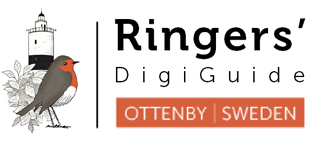

Yellowhammer
AGE – BEST CRITERIA:
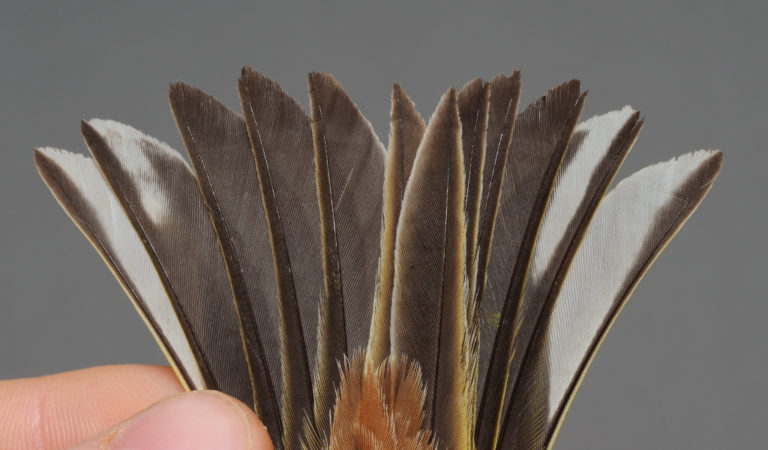
2cy (male) March. Juvenile RR are generally more worn, show more pointed tips and are, on average, slightly narrower than in adult. Note that some 2cy birds (though not this one) show one or more post-juvenile RR, often among the inner R1-3, being more fresh, slightly broader and with blunter tip. [2KR09696]
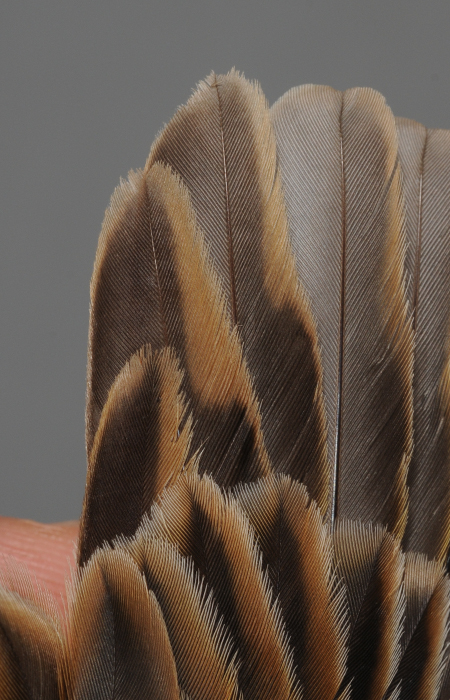
2cy (male) March. Quite many 1cy, like here, show uniformly juvenile TT. Note the juvenile structure and wear and the rather brownish centres. Compare to the state ande structure of the juvenile inner SS and the post-juvenile inner GC. [2KR44240]
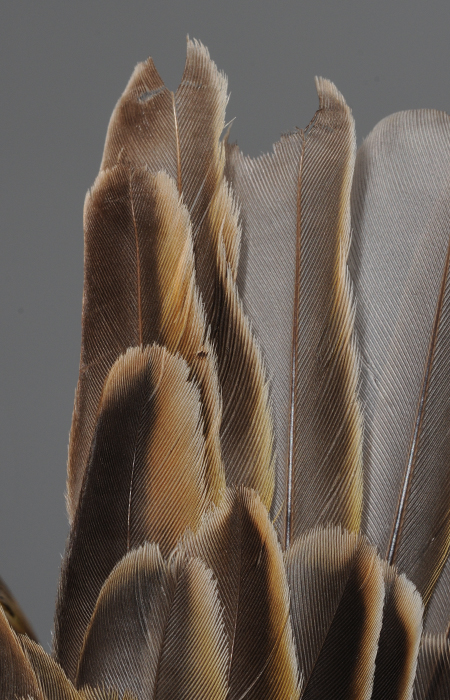
2cy (female) April, showing a moult contrast where the innermost T is moulted post-juvenile, while the outer two are unmoulted juvenile. This contrast may sometimes be rather hard to see, but note the difference in wear as well as in the colour and gloss of the centre, were the inner T is blackish and the longer two are more brownish. [2KR44246]
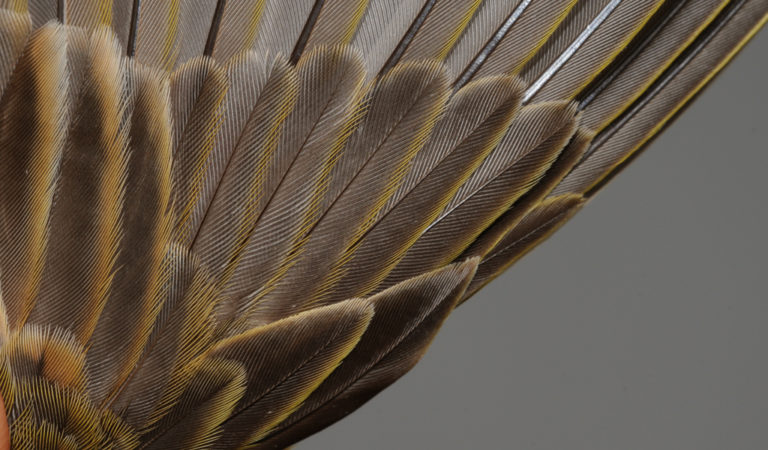
2cy (male) March. The juvenile PC shows a looser texture and slightly more worn tips and edges compared to adult birds. Further, the centre of the PC are often slightly paler brownish and less glossy than in adult, and the edges and tips are often less neat green/grey. However, there is a clearvariation, and some individuals are less easy to asses. [2KR09697]
More Emberiza citrinella:
Sexing spring
Ageing autumn
Sexing autumn
Moult
Ringers’ DigiGuide is sponsored by: